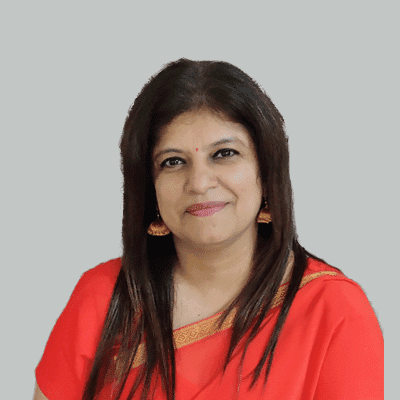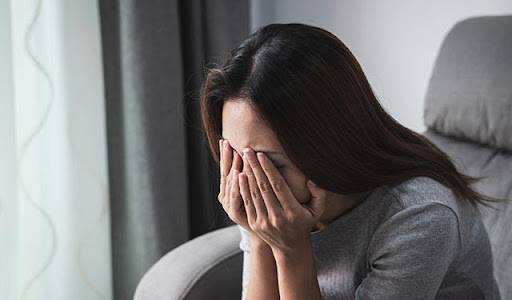Introduction
Social media helps you share and express yourself through virtual networks over the internet. It provides quick information about any user, whether personal information, documents, or photos. The content, usually user-generated or automated, helps you establish a virtual connection with different people across the globe.
However, in the current day and age, social media has taken over our lives, generating certain conditions among users that can ultimately be quite destructive to our health. According to surveys, regular use of social media can increase the risk of anxiety, depression, and in rare cases, suicidal thoughts. Let us explore the condition of social media anxiety in detail below.
Our Wellness Programs
What is Social Media Anxiety?
Social media anxiety is a common emotion that may occur due to insecurity, constant fear of missing out on what’s happening in the surroundings, or it may occur due to isolation too.
Overuse of social media platforms like Facebook and Instagram may, at times, make you feel insecure. Scrolling through air-brushed pictures of your friends may take you into a self-doubt state about your looks and appearance.
Besides, you might keep checking your phone after every few minutes for updates or have an urge to respond to every alert even while driving or doing some important work. In short, a social media anxiety disorder can cause mental illness or can make you gradually distance yourself from real-life connections.
Looking for services related to this subject? Get in touch with these experts today!!
Experts

Kirti Bajpai

India
Psychologist
Experience: 5 years

Neelam Parwani

India
Life Coach
Experience: 5 years

Ritu Singh

India
Life Coach
Experience: 16 years

Davis Emerson

India
Psychologist
Experience: 6 years
What factors reflect Social Media Anxiety?
There is no such measure that decides whether social media usage is getting harmful for a person or not. The use of social media can be a source of entertainment or a stress-buster for most people. However, there are a few tell-tale indicators that show your anxiety towards social media:
- Prioritising social media connections over real-world relationships: You may tend to spend more time on social media rather than meeting offline friends. You may also feel like checking your phone every time while talking to somebody.
- Falling victim to cyberbullying: This is usually common among teenagers. According to researchers, around 10% of teens on social media are victims of bullying. Students post offensive comments, rumours, and hurtful messages on websites to insult a person publically, which may aggravate the person’s anxiety.
- Getting distracted: Being on social media every time may distract you from work and hamper it. Students may lose the willingness to study well.
- Indulging in risky behaviour: To gain attention, a person may humiliate others by pulling ranks online or making embarrassing posts. One may also cyberbully classmates or co-workers to gain views.

What are the symptoms of Social Media Anxiety?
The vicious cycle of social media usage can be dangerous after a certain period. The symptoms of social media anxiety include:
- Fear Of Missing Out (FOMO): The fear of missing something can make you check your social media account frequently. If you don’t visit your account, you may fear missing out on some gossip or information on social media. You may also feel that your relationship may be affected if you do not like a picture or a post. These irrelevant thoughts cause anxiety and force you to be active online all the time.
- Self-absorption: The excitement to share unlimited selfies now and then creates unhealthy self-centeredness in you. It also affects your mental health.
- No me-time: You may get over-involved in the virtual world and gradually lose your moral values. You disconnect from your inner self and forget who you are.
- Insomnia: If you check your phone before going to bed or after waking up in the morning, you are harming your health. The blue light from phones affects your eyes, leading to sleep disorders.
What is the treatment for Social Media Anxiety?
To avoid mental health issues caused by excessive use of social media, we need to take a few steps and modify our lifestyle. You can reduce social media addiction by taking the following steps:
- Decrease screen time: Use an app to keep track of your screen time. Fix a certain number of hours for your social media leisure time. If possible, turn off your cell phone while driving, sleeping, or when you are in a meeting. Avoid taking your phone to the washroom. Turn off social media notifications; otherwise, they will keep on buzzing and distract you from your work.
- Focus on your purpose: Many of us use social media for the sake of time passing or posting pictures. Passive scrolling through posts only kills time. Before logging in to your social media account, be clear with the purpose. It will not only keep you focused on the work but will also reduce your screen time.
- Spend time with friends and relatives: Recall the days when you visited friends and relatives quite often. Meet them, play different games, and spend quality time. Face-to-face bonding is always better than virtual connections. Plan for some getaways with friends frequently where you keep your cellphones off. You can also join a club or community and participate in various outdoor activities to help you stay active and not constantly reach for your phone.
- Practice mindfulness: Constant media usage makes one feel insecure. As a result, you compare yourself to others unfavourably. You are entirely engaged in the present. You cannot think about the future and its consequences. By practising mindfulness, you can think wisely and improve your state of mind.
- Raise a helping hand: Instead of draining energy in useless social media gossips and posts, try to volunteer and help others. Helping the person in need or animals benefits others and gives you joy.
Children or teenagers are likely to be more attracted to the virtual world. However, in the case of children, excessive use of social media can lead to health issues. You cannot ask your child to cut off social media connections altogether as it may be challenging for them. Besides, restricting your child will keep them away from the positive aspects of social media. However, you can limit your child’s social media time by using parental control apps or adjusting privacy settings on different platforms to limit their exposure to the websites.
















